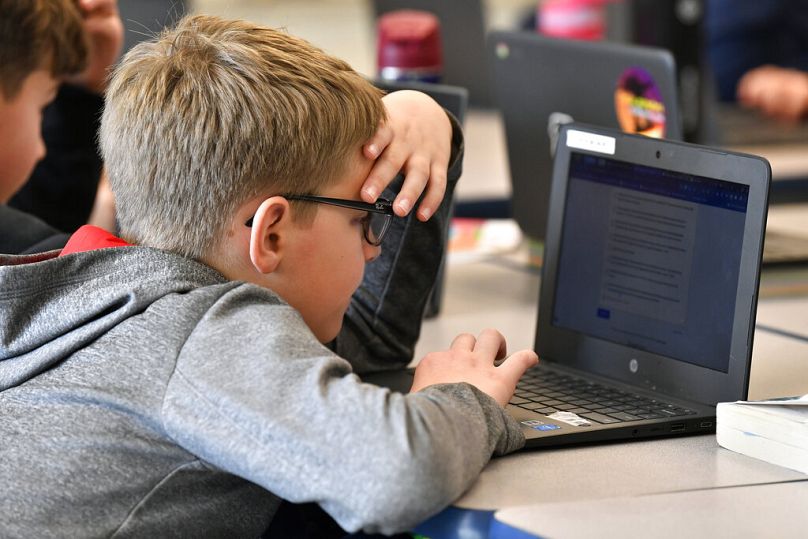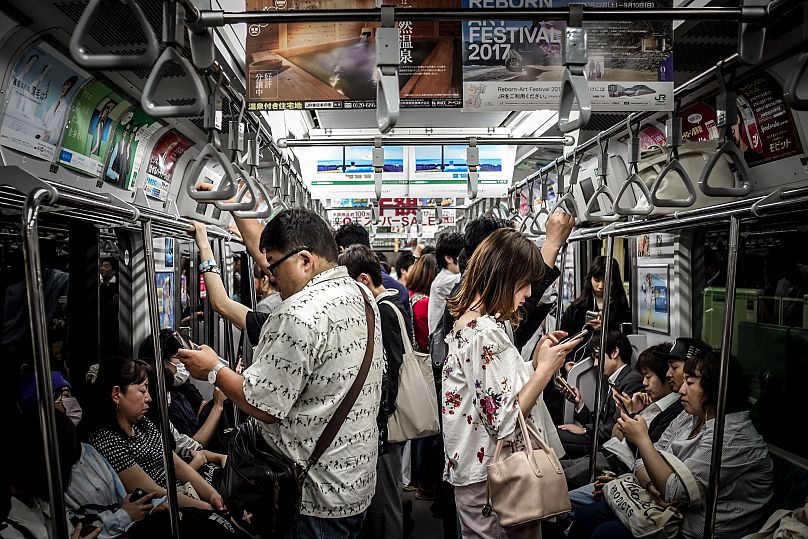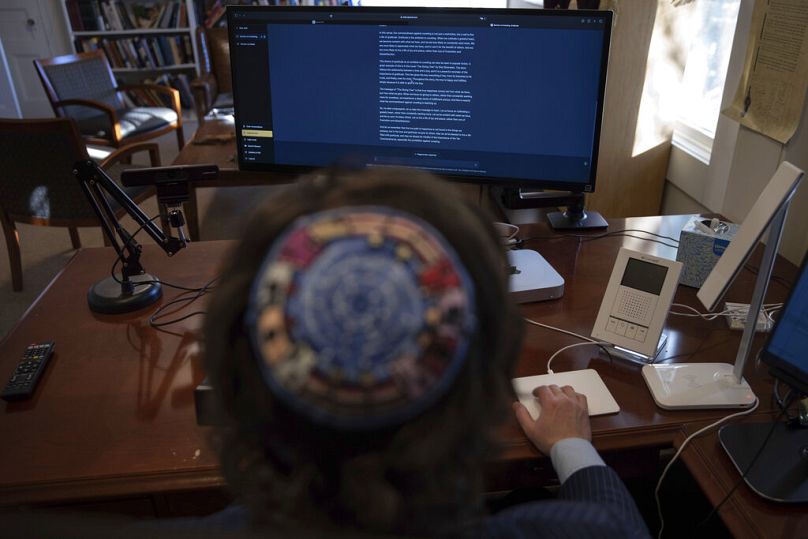Our excitement with ChatGPT is often explained by the magic of the tech, but perhaps the real reason is people seeing more clearly our collective need for making sense of a complex world, Colin Strong argues.
The fourth release of ChatGPT, an AI chatbot tool that has been around for some time now, has sparked unprecedented excitement, puzzling tech experts worldwide.
 ADVERTISEMENT
ADVERTISEMENT
 ADVERTISEMENT
ADVERTISEMENT
The fact that the current version is perhaps not all that different to previous ones, or indeed is more or less the same tech as that used for things like customer service chatbots, simply adds to the mystery.
So, what explains why millions of people have suddenly accessed this technology, why other tech giants are swiftly promoting their own versions and why billions of dollars are wiped off company valuations for what might be considered minor differences in the quality of the outputs?
Despite the Occam's razor — where the simplest explanation of a phenomenon is usually the most accurate one — the latest technology twist to generative AI is a necessary but not sufficient argument often heard used while justifying all the excitement.
What will sink and what will swim?
The process of working out which technology will catch fire and which will be consigned to a footnote in the history books is not an easy one at all.
But maybe we can take advantage of the perspective of the moment we are in to offer us some insight.
The usual way to explain it is to look for rationale in the technology itself, of course: maybe there is an extra ingredient that has created this excitement.
But given that this is not something fundamentally new means it is very hard to pinpoint what this component actually might be.
To fully understand what is happening, we need to instead turn our heads and look away from the tech and towards the other side of the equation: the population using it.
When we look closely, what we find is a degree of readiness — and need — for a technology that solves a problem for us.
The right tool for the times
In this case, the tool promises that we can synthesise the huge amount of data on a topic into something manageable and easy for us to assimilate.
It is not the first tool that has promised this, but perhaps what might be new is the readiness of the people for just such a solution.
We are, according to the WHO, living in an infodemic, with huge volumes of information and more ways that we can access it than ever before.
We can locate answers in all sorts of online locations, from a more familiar web search yielding pages of links and online forums with lively discussions to email newsletters and social media posts.
A cynic might argue we have always had information overload — after all, perhaps even our local bookshop or library has more material on the topics we want to explore than we could likely assimilate.
But regardless of whether or not we really are in an epoch of information overload, people may simply feel the anxiety of this more keenly and are ready for a means to fix it.
How to make sense of an increasingly complex world?
We often talk in cycles or ages in history with reference to technology (e.g. Web 1.0, 2.0, 3.0, etc.), but we do so less with populations.
Perhaps this is because we tend to think of people as individual fixed beings with needs that do not really change.
But, of course, our needs are much more dynamic and multi-faceted than this would have us believe.
With this in mind, if we move away from the scrutiny of technology and instead look more closely at ourselves, then we can surely see we feel the difficulties of being in an ever more challenging struggle to make sense of the huge range of information feeds to answer questions about an increasingly complex world.
As this need has intensified, then it is clear why we might want something that does the synthesis for us, wrapped up in an easy-to-read, understandable way.
And why, even though the technology has been around for a while, earlier versions did not take off in the same way: our needs had not quite reached the necessary tipping point.
Taking this perspective releases us from fetishising technological progress as inevitable and imbuing the architects of this as individuals with supernatural powers.
It's all about the slowly growing boil of unmet needs
Of course, the achievements of generative AI that we are seeing are impressive, but perhaps they are not, of themselves, driving our current interest.
The equation is instead flipped. Through the introduction of ChatGPT, we realise there has been a slowly growing boil of unmet needs of which we have only been dimly aware.
And now that there is a solution, the boil that was getting ever tenser, creating a state of readiness for change, for the unmet needs to be lanced.
One thing is clear: as a population, we can now be confident in our need for better solutions that help us to navigate our information-rich world.
And as such, the current wave of generative AI opens us up to a more conscious consideration of ways to resolve this.
Colin Strong is a professor at Nottingham University Business School and Head of Behavioural Science at Ipsos.
At Euronews, we believe all views matter. Contact us at view@euronews.com to send pitches or submissions and be part of the conversation.















